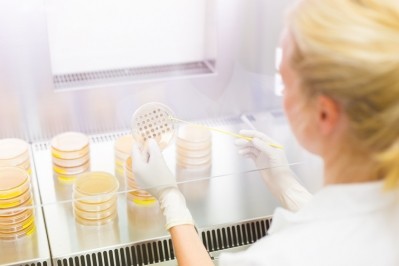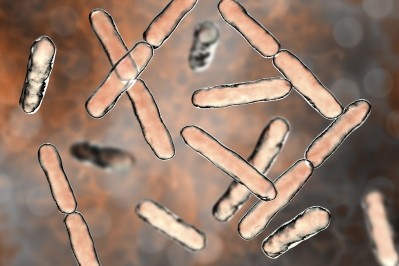Survival of the fittest: Gut colonisation study could lead to gene-targeting probiotics
![Katherine Pollard (left) and Patrick Bradley (right) identified genes that may help microbes live successfully in the human gut. [Photo: Elisabeth Fall]](/var/wrbm_gb_food_pharma/storage/images/_aliases/wrbm_large/publications/food-beverage-nutrition/nutraingredients.com/article/2018/08/14/survival-of-the-fittest-gut-colonisation-study-could-lead-to-gene-targeting-probiotics/8503315-1-eng-GB/Survival-of-the-fittest-Gut-colonisation-study-could-lead-to-gene-targeting-probiotics.jpg)
The approach uses phylogenetic linear modelling, a technique that uses information from an evolutionary tree to map out the historical relationship between different species.
This method is applied to metagenomics data, generated by the collective genetic material from the microbes present in the human body.
“Until now, this has not been an easy feat," said Dr Katherine pollard, director and senior investigator, at the Gladstone Institute of Data Science and Biotechnology in San Francisco.
"Most microbes in the gut have evolved from related species, so they share many common genes. It's difficult to single out the genes that actually influence a microbe's ability to survive in the gut environment."
Beneficial vs. Harmful
Dr Pollard’s findings have parallels to ongoing work looking into distinguishing the beneficial microbe from the harmful one.
Increasing evidence shows that commensal gut microbes are responsible for protecting against inflammation and pathogen invasion, maintaining the intestinal barrier and potentially even affecting mood.
In contrast, pathogens can induce and worsen inflammation and cause potentially life-threatening infections.
Her findings could also shed light on why certain microbes from the faecal microbiota transplant (FMT) donor persist long-term and others do not as well as how pre-existing inflammatory disease affects FMT efficacy.
Dr Pollard's approach
Dr Pollard and her team began looking at new computational methods and DNA sequencing they hoped would overcome current approaches that focus on the genes shared by gut microbes but do not account for microbes' common ancestry.
With phylogenetic linear modelling, the team analysed public data from hundreds of individuals from ‘post-industrialised countries,’ discovering thousands of genes across different species that are dominant in the gut.
Dr Pollard along with fellow postdoctoral academic Patrick Bradley also discovered genes in microbes that were more dominant in the gut than anywhere in the body, suggesting that these genes may be specific to this environment.
The researchers believe the genes they identified may help microbes colonize the gut, for example, by allowing microbes to survive in acidic environments, such as the stomach.
Value-added data
"If we want to target individual microbial genes, we first need to understand the role they play in colonising the gut," said Dr Pollard,
"This could yield opportunities to design better probiotics or prevent invasion of the gut by harmful pathogens like C. difficile."
Bradley added that the study allows the prediction of genes that might be important in a particular environment with much greater accuracy than standard models allow.
"Our hope is that other scientists will realize they can get so much more out of the data they already have by using our approach."
Source: PLOS Computational Biology
Published online ahead of print: doi.org/10.1371/journal.pcbi.1006242
“Phylogeny-corrected identification of microbial gene families relevant to human gut colonization.”
Authors: Patrick Bradley, Stephen Nayfach, Katherine Pollard















